The Good Doctor
Olukorede S. Yishau
When my father and mother were flogging me out of the magnificent palace, Nadia was with them, smiling as though she was deriving joy from my ordeal. They were meticulous in their act of wickedness. At some point, I saw sadness when she noticed the beating wasn’t changing my mind. The pankere canes produced a rhythm similar to the agidigbo drum on my delicate skin.
“Go back! Go back!” They screamed as their pankeres were hitting my body. Their voices were heavy and sounded distinct from what I knew.
“This is not your place,” my mother said, striking me on the head with the cane popular among Yoruba parents.
“Get out of here this minute,” my father added, doubling the pace of the pankere on my body.
I couldn’t cry, I couldn’t laugh, I was expressionless.
“Please get him to go back,” Nadia said, the smiling now gone replaced by concern.
“He has no choice,” my mother said.
“Except he is a bastard,” my father agreed with her.
“Of course, he isn’t,” Mother fought back, becoming more aggressive while applying the pankere on my body.
The more they thrashed me, the more defiant I became. The cane did not affect my body; I had no swelling or blood. It was as though they were caressing and massaging me with the best soothing oil. Suddenly, my father grabbed a hose and began spraying me with the contents, which turned out to be hot water. I screamed and began my journey back.
I woke up and realised it was all a dream, and that was when it made sense to me because my parents could never have subjected me to such punishments, and Nadia would never have derived any shade of joy in my suffering.
Fourteen days had passed before the hot water pulled me out of unconsciousness. Less than an hour later, I went back into a coma and didn’t come out of it for another two days when the pungent smell of sanitiser welcomed me. My bones creaked when I tried raising my body, and I couldn’t see clearly. As my consciousness improved, I saw at least two machines coaxing me back to the land of the living. I felt something, too, on my arm. An intravenous line was attached to my veins, feeding me with fluids of life. Through my slightly dizzy sight, I saw a nurse dash in and out, only to return with a doctor whose face lit up as soon as he held my gaze.
“Mr Adenola,” the doctor’s voice carried the distinct melody of a fluent Yoruba speaker.
My mouth felt heavy, so I offered a nod. The doctor checked my vitals and smiled as he recorded his readings in his medical pad. The nurse, who looked Mexican, maintained a vigilant watch over me as though doing otherwise would tilt me back to that halfway place between life and death that I had just returned from.
“What happened?” I finally found my voice.
“You need to rest. All I’ll say is that your prognosis is good. We were able to stem the danger right on time. You’re a lucky man,” the nurse said.
“What danger?”
But neither the doctor nor the nurse answered me. They attached a new IV to my arm, and I soon lost touch with my surroundings again. When I woke up, I tried to remember how I got to the St. Augustus Emergency Hospital from the apartment I shared with my son, Debayo, in Bissonnet. It all seemed like fragments of an elusive dream. But the answer remained on the fringes of memory, like one of those things you had almost remembered but never did.
Debayo helped me connect the dots when Pastor Echeruo was eventually allowed to bring him to see me. His face was covered in a mask, and his feet were encased in non-slip hospital socks to avoid germs that could hurt my weak immune system.
Debayo said he’d found me on the bathroom floor holding my tummy, blood dripping from my mouth. Plenty of blood, he said. The only things that came out of me were weak screams. He said he didn’t want to leave me alone but knew he couldn’t do much, so he left me and ran to the Leasing Office. He didn’t find help there because it was locked. The whole apartment complex was bereft of activities. Everyone was hiding behind the walls, evading the deadly virus.
He said as he cried on his way back, a voice that sounded much like his late mum’s told him to go home and dial 911. He ran home and made the call. The dispatcher told him to calm down, asked for our address and assured him help was on its way.
While waiting for the ambulance, he rang our pastor who got to the apartment just as the ambulance took me away.
At this stage, I interrupted him: “I’m really sorry, Debayo. I can imagine what you went through. I couldn’t think of another way out. I felt death would save me the shame of failing you.”
Debayo just held me, held me really tight and didn’t let go until several minutes later after securing an assurance that I would stay with him till God’s time.
Pastor Echeruo, who was with us all this time, looked tough and strong, but I saw a hint of wetness somewhere in his eyes. He came close, held my hands with his gloved hands and said silent prayers. He was at it for some minutes. I could hear him speaking in tongues, that part of Christianity I still struggled to understand, a struggle that made me wonder if I wasn’t Christian enough because no matter how I tried, I had been unable to speak in tongues, not even when a pastor in Nigeria said he was baptising me with the Holy Spirit. He left me alone after minutes of commanding me to speak, and nothing came out of my mouth.
“It is well, Brother,” Pastor Echeruo said. Minutes later, he announced to Debayo that it was time they left. I could sense the fear in my son, the fear of the unknown, the fear of whether or not he would see me again and perhaps the fear of what would follow if I made it out in one piece.
After my son and Pastor Echeruo left, the memory of my life’s drama returned in 3D.
***
Buy Covik One Nine here: Amazon
Excerpt from COVIK ONE NINE: STORIES AND POEMS published by Paperworth Books. Copyright © 2024 by Ibiso Graham-Douglas.


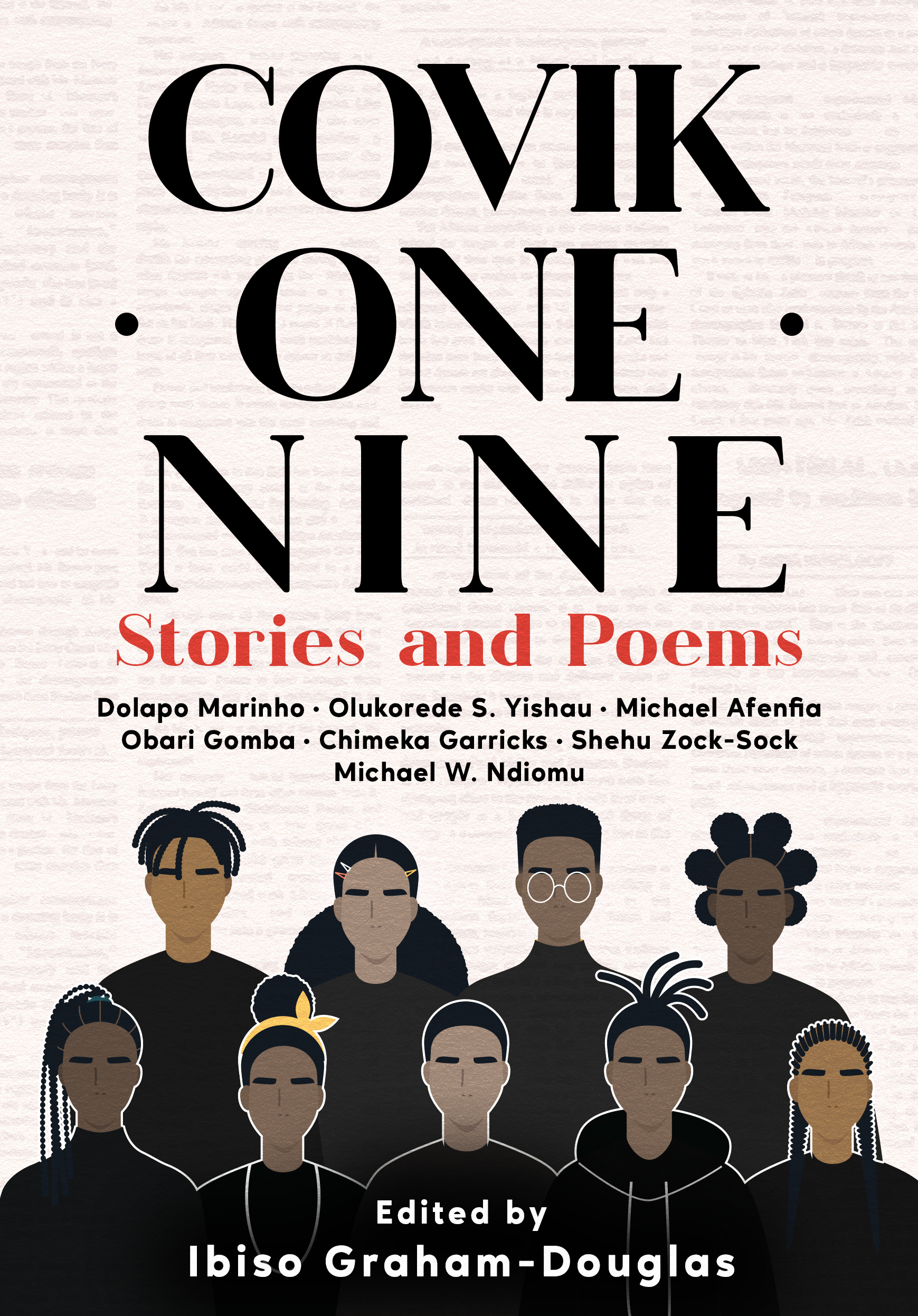
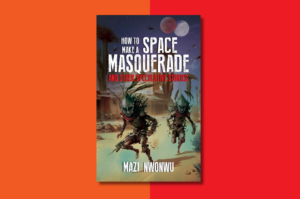
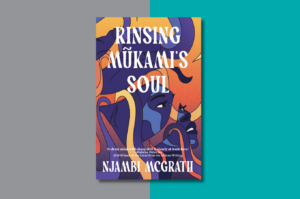
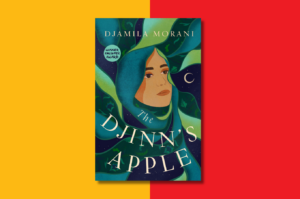
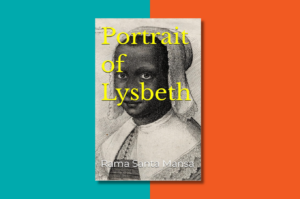
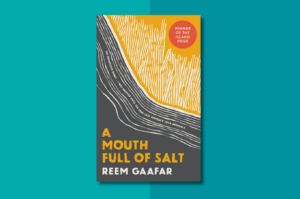
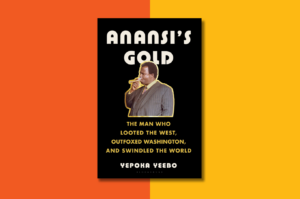

COMMENTS -
Reader Interactions